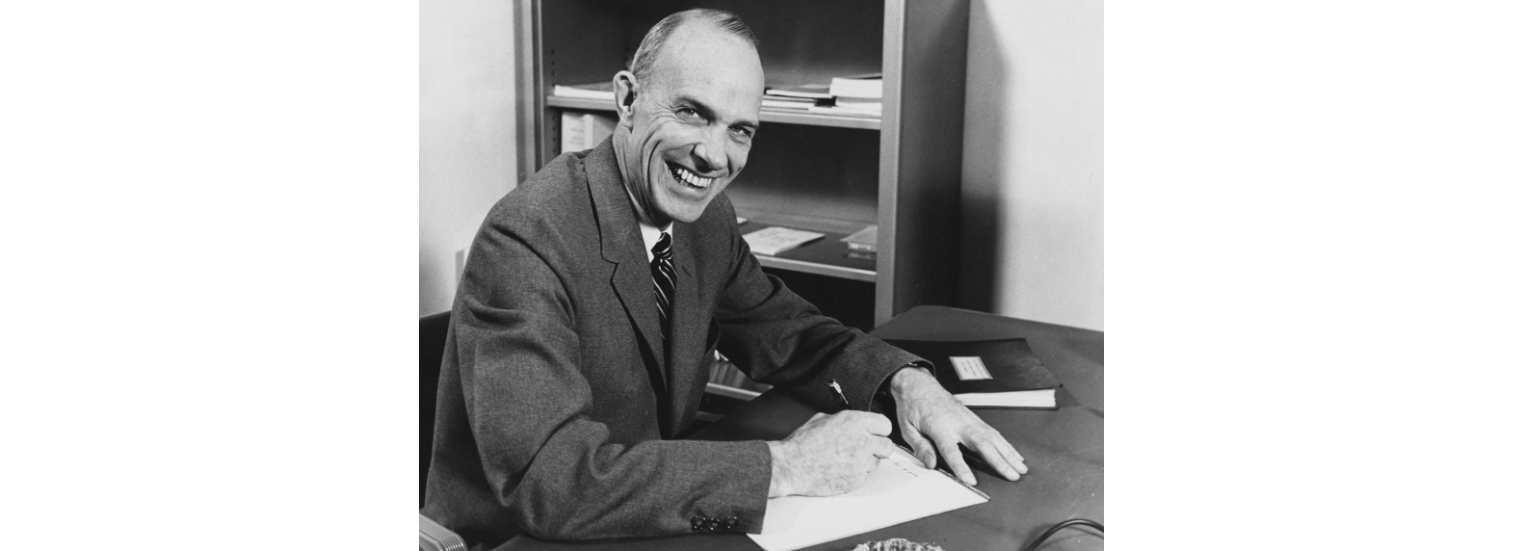For 65 years, the department of behavioral science has engaged in transformative research and provided exceptional educational opportunities for learners. Founded in 1959 by William R. Willard, MD, the first dean of the College of Medicine, and Robert “Bob” Straus, PhD, the department was the first of its kind in the United States.
The decision to embrace behavioral science as a necessary discipline within medical education was unique for the time, but it has since become an established priority for the National Institutes of Health (NIH). At many medical institutions, behavioral scientists are scattered throughout clinical departments or placed in divisions within departments of psychiatry. As a freestanding basic science department at the UK College of Medicine, the department is an administratively independent academic teaching and research unit.
Dr. Straus, traveling by train, arrived at the University of Kentucky in 1956 as a member of the five-person team assembled by Dr. Willard. Their purpose was planning the construction and academic curriculum for what would become the UK College of Medicine. Dr. Straus would go on to serve as chair of the department of behavioral science for nearly 30 years.
He was committed to recruiting faculty from a variety of behavioral and medical disciplines, recognizing the important role of multidisciplinary approaches to medicine and healing. That collaborative atmosphere contributes to the department’s strengths in education, service, and research through today, with several faculty holding joint appointments across the institution in disciplines such as sociology, anthropology, psychology, and social work, to name a few.
"The UK College of Medicine was one of the first of a new generation of medical schools," said Straus in a 2010 interview. "It was planned with special attention to the needs of its students, its patients, and the people of Kentucky, as well as to meeting the standards of academic and scientific excellence."
Succeeding Dr. Straus, Thomas Garrity, PhD, and Carl Leukefeld, DSW, continued expanding upon the department’s complementary missions of education, research, and service during their respective tenures. Dr. Garrity’s 12-year tenure as chair saw the expansion of behavioral science training to encompass graduate students as well as medical students. Dr. Leukefeld, drawing on his experience at the NIH, significantly enhanced the department’s research capabilities, creating a robust infrastructure that bolstered faculty success in securing external grant funding.
Thomas Kelly, PhD, current chair of behavioral science, has inherited a department with impressive successes and hopes to maintain its momentum. Under his leadership, the department has continued to expand its educational reach by developing an undergraduate certificate program. Claire Clark, PhD, serves as director of graduate studies within the department and oversees the newly established program, aimed at providing a foundational understanding of behavioral science that be will effective as students transition to future careers in medicine.
“The work of our department is having an impact— an immediate impact,” Dr. Kelly said. “The research that we do is at the patient level, at the community level, and at the policy level.”
The department also supports and partners with two prominent research centers within the college— the Center on Drug and Alcohol Research (CDAR) and the Center for Health Equity Transformation (CHET). These collaborations have not only advanced scientific knowledge but also address critical health challenges facing Kentucky and beyond.
Founded in 1990, CDAR conducts research into the biological, psychological, social, epidemiological, and clinical aspects of substance use and related behaviors. “The partnership between CDAR and behavioral sciences has been remarkably effective and amicable,” said Sharon Walsh, PhD, who has served as the center director since 2008. “It has led to tremendous growth in the numbers of researchers focusing on substance use research and the continued research growth and success of both units.”
CHET, founded and directed by Nancy Schoenberg, PhD, is dedicated to fostering innovative, transdisciplinary, and impactful health equity research in the Commonwealth. “The justification for CHET’s focus is all too easy to make: Kentucky has a declining life expectancy and among the highest national rates of morbidity and mortality from cardiovascular disease, cancer, substance abuse, diabetes, and obesity,” said Dr. Schoenberg. “The investment our leaders have made in CHET’s potential to undertake this work is humbling and inspiring.”
As we celebrate the 65th anniversary of the department, and the establishment of the College of Medicine at-large, we are grateful to all who have contributed to its successes over the years. We look forward to all the department of behavioral science will continue to accomplish through its robust educational programs, transformative research initiatives, and its lasting impact on Kentuckians and beyond.
Images:
(Above) Dr. Straus and an unidentified woman tour the medical campus
(Below, L-R) Dr. William R. Willard, founding dean of the College of Medicine, Dr. Robert "Bob" Straus, founding department chair, and Dr. Thomas Kelly, the Robert Straus Professor and current chair of the department


